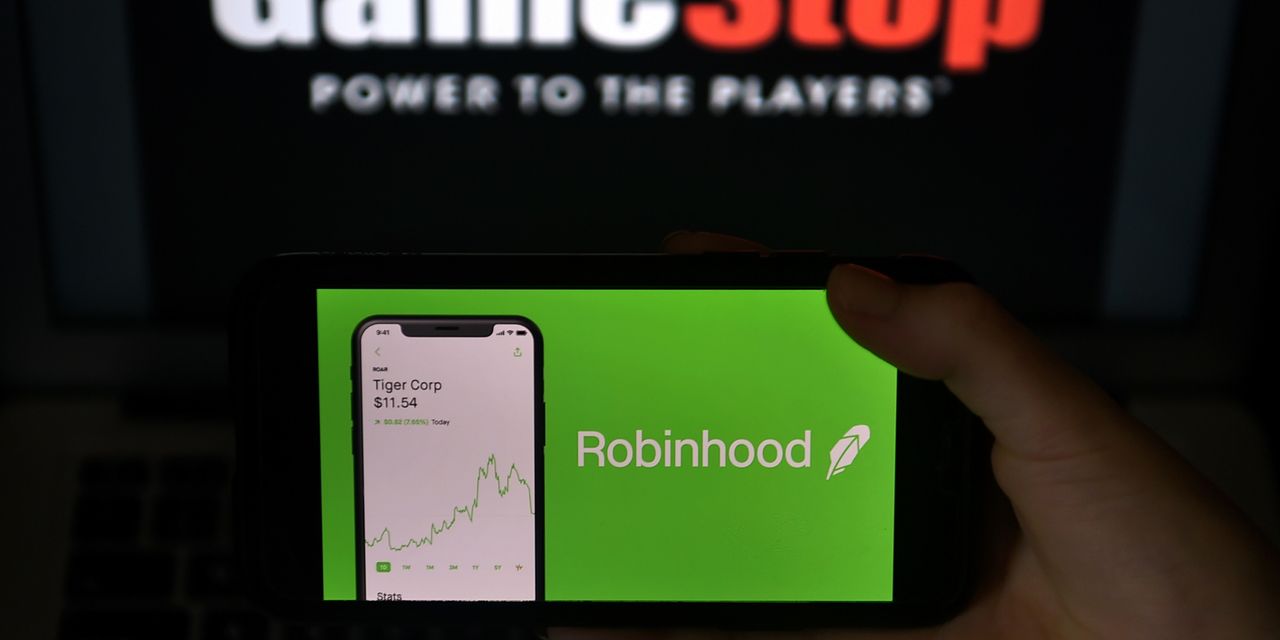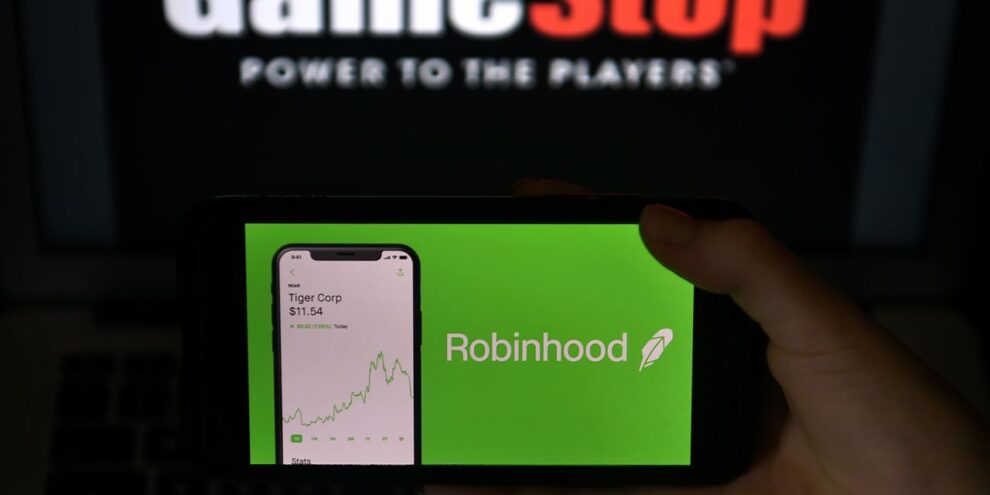
The commission-free online brokerage Robinhood faces several new class-action lawsuits brought by customers across the country this week, alleging the company prevented them from buying shares of GameStop Inc. GME, +67.87% and other hot socks for nefarious reasons.
Legal experts tell MarketWatch, however, that plaintiffs will face an uphill battle seeking damages because there are good regulatory explanations for why the buy ban was initiated and because user agreements give the broker wide latitude to block sales and liquidate user accounts.
“The most pertinent facts are the real reasons why Robinhood halted the trading and the extent to which all investors were treated equally,” Jill Fisch, professor of business law at the University of Pennsylvania’s Carey Law School told MarketWatch.
For instance, in a lawsuit filed by Brendon Nelson of Massachusetts in federal court in New York alleges that “Robinhood is pulling securities like GME from its platform in order to slow growth and help benefit individuals and institutions who are not Robinhood customers but are Robinhood large institutional investors or potential investors.”
A second lawsuit filed by Josh Gossett and James LePlant Thursday night in federal court in California alleged that “Robinhood acted contrary to the interests of its clients and anointed itself as the overlord of the free market, opting to damage its clients in favor of its own financial interests and the interests of other market participants, many of whom had interests directly adverse to Robinhood’s clients.”
If this is in fact true, Fish said, that would be “problematic” and would raise the chances that such a lawsuit could succeed.
Robinhood co-founder Vladimir Tenev said on Twitter that the real reason it was forced to stop selling shares of GameStop and other stocks was regulatory.
Dan Awrey, professor of law and expert in financial regulation and market structure told MarketWatch that this explanation is plausible, given the extreme volatility of the stocks in question and the one-way direction of Robinhood users’ bets on those stocks.
The Depository Trust and Clearing Company and its subsidiaries operate as the single clearinghouse and depository through which all public stock trades are executed in the U.S. It is the institution that actually performs the exchange of stocks for cash, where securities are deposited for safekeeping as trades are being executed, and it enables instantaneous buying and selling of stocks even when the actual settlement of the trade takes twenty-four hours or more.
“The chances of a broker failing to perform its obligations to DTCC are relatively slim at this point, and if they have a balanced book of buys and sells in any given stock, the exposure of DTCC if they do fail is relatively small and in the normal course, collateral requirements reflect that ,” he said.
“But this wasn’t the normal course,” he added. “Robinhood had a huge open position, one-way, all buys and no sells of an extremely volatile stock,” and therefore Robinhood’s collateral requirements skyrocketed.
Reports indicate that Robinhood quickly raised $1 billion from existing investors in order to help meet these requirements, and it has therefore eased up some restrictions on the sale of GameStop shares and others.
This doesn’t mean that Robinhood, traders of GameStop stock or financial regulators are out of the woods. There have been widespread reports that Robinhood liquidated users holdings of hot stocks without their permission.
While the company has said that this is part of our “standard margin-related sellouts or options assignment procedures,” left unsaid is the fact that Robinhood users are automatically enrolled in a margin account that leads to users effectively borrowing from Robinhood to execute trades, and gives the firm latitude to liquidate their holdings without permission.
“I have no idea why regulators allowed this,” Awrey said. “That is an issue that’s at least as uncomfortable for Robinhood’s regulators as it is for Robinhood,” he added, arguing that the Financial Industry Regulatory Authority, the Federal Reserve, or the Securities and Exchange Commission could have restricted the “extremely unusual” practice and therefore saved many of its customers from the confusion and disillusionment that resulted from having their holdings automatically liquidated.
Robinhood did not respond to requests for comment.
The University of Pennsylvania’s Fisch said that ultimately, these issues are likely to be addressed by regulatory actions rather than private litigation, which could easily wind up in a private arbitration process.
“In the next couple days we’re likely to get some sort of regulatory response,” she said. “The regulatory intervention could be on the side of social media and this kind of trading, but it could also be aimed at Robinhood or other firms, and how their supposed to respond.”











Add Comment